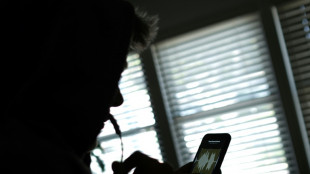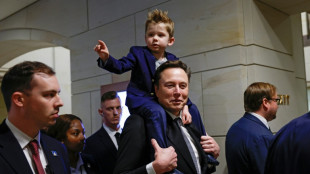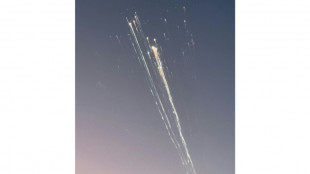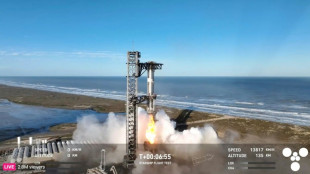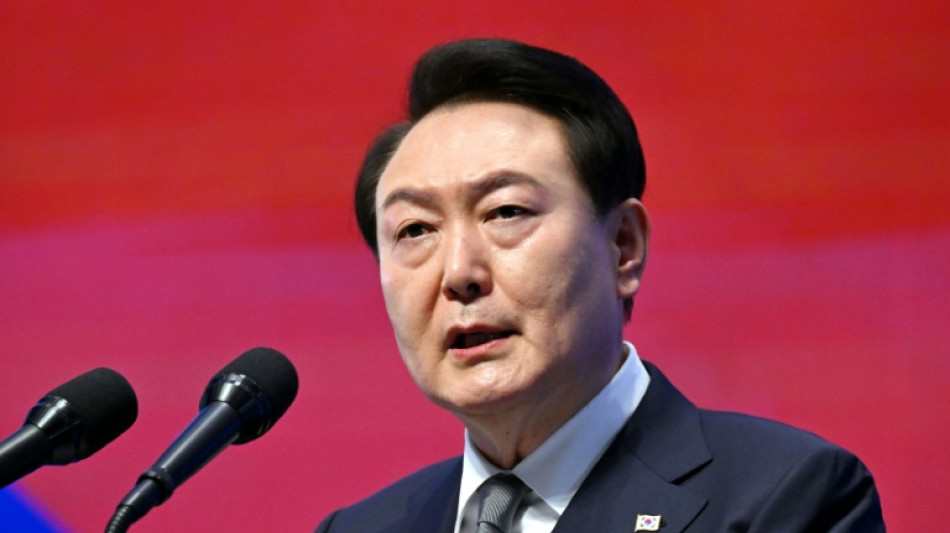

South Korean President Yoon hails key 'step forward' in Japan ties
South Korea's President Yoon Suk Yeol on Wednesday hailed growing cooperation with Japan on issues from North Korea to semiconductors, saying it was part of a historic "new chapter" for the two countries.
Yoon will travel to Tokyo on Thursday, his first visit since taking office last year, which follows his controversial move to try and finally settle a bitter historic dispute over Japanese World War II-era forced labour.
Yoon said he was confident his new plan to compensate victims would work, telling media including AFP in a written interview that "the Japanese government will join us in opening a new chapter of Korea-Japan relations".
Yoon's plan, unveiled this month, involves compensating Korean victims without Tokyo's direct involvement, which has enraged some victims who say this falls far short of their demand for a full apology and direct compensation from the Japanese companies involved.
"Japan has expressed deep remorse and heartfelt apology in regard to its past colonial rule through the position of its previous governments," Yoon said.
Around 780,000 Koreans were conscripted into forced labour by Japan during its colonial rule of the peninsula from 1905 to 1945, according to data from Seoul.
That number does not include Korean women forced into sexual slavery by Japanese troops.
Yoon is eager to lay the historic dispute to rest as he seeks closer ties with Tokyo -- a key regional ally of Seoul's security partner Washington -- in the face of growing threats from North Korea.
- 'Polycrisis' -
Pyongyang last year declared itself an "irreversible nuclear state", with leader Kim Jong Un at the start of 2023 calling for an "exponential" increase in weapons production -- including tactical nukes.
South Korea will "never acknowledge North Korea as a nuclear state under any circumstances," Yoon said in the interview on Wednesday.
He pointed to reports of people starving to death in North Korea -- which has been under a strict self-imposed blockade since the start of the Covid pandemic in 2020.
"The North Korean regime could easily resolve its food shortages if it injected the money it spends on nuclear and missile development into improving its people's livelihoods," Yoon said.
Both South Korea and Japan are ramping up defence spending and joint military exercises, which Yoon said were essential for regional and global stability.
"There is an increasing need for Korea and Japan to cooperate in this time of a polycrisis with North Korean nuclear and missile threats escalating," Yoon said.
"We cannot afford to waste time while leaving strained Korea-Japan relations unattended. I believe we must end the vicious cycle of mutual hostility and work together to seek our two countries' common interests."
- Trade curbs -
But his moves to draw closer to Japan have been criticised as "insulting" to victims of forced labour by South Korean activists, and run contrary to some court rulings.
A landmark 2018 decision and other subsequent South Korean verdicts ordered companies including Mitsubishi Heavy Industries to pay compensation to Korean victims -- a move that sent ties with Japan to their lowest in years.
Following the ruling, Japan in 2019 imposed export controls on key industrial materials needed by South Korea's chip industry and removed the country from its "preferred trading nations" list. Seoul filed a complaint to the World Trade Organization.
But both now appear to be moving to unwind tit-for-tat trade restrictions.
South Korea said this month it would halt its WTO complaint over Japanese export curbs.
"Both Korea and Japan are key nations in such global supply chains as semiconductor production," Yoon said.
"Stronger economic cooperation between Korea and Japan will likely contribute greatly to boosting global supply chains."
V.Morales--ESF

